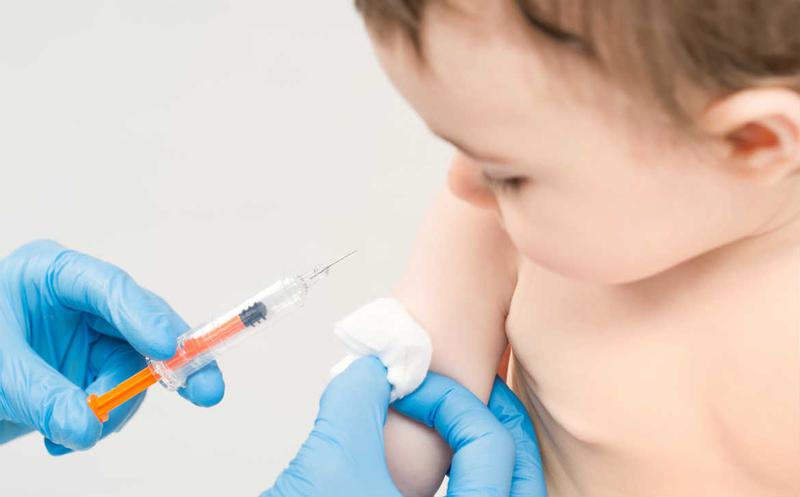Vaccination

Vaccines are medicines that are administered by mouth or by an injection into the muscles or skin with the aim of stimulating the production of defenses (antibodies) that avoid suffering an infectious disease. The protection that is obtained with vaccines must be free of important side effects and its protective effect must be maintained for long periods of time. To get the body to produce a protective immune response, the vaccine must contain parts of the viruses or bacteria that we want to protect ourselves from.
Compulsory vaccinations for everyone, including cardiac patients:
o Antihepatitis B.
o Anti diphtheria, tetanus and whooping cough.
or
o Joint vaccine against Haemophilus influenzae type b.
o Anti measles, rubella and mumps.
Recommended vaccinations in all children, including heart patients:
o Antirotavirus between 2 to 6 months. Rotavirus is the main cause of gastroenteritis in the pediatric age. This virus causes general discomfort with tiredness, vomiting and diarrhea. Special care should be taken in children with heart disease who take diuretics, since they are at higher risk of dehydration.
o Chickenpox infection can be serious in children with heart disease, so vaccination is recommended.
Recommended vaccines in children with heart disease:
o Flu (Influenza). Vaccination against the common seasonal influenza virus is indicated annually in cardiac children older than 6 months of age and also in healthy siblings older than 6 months and adults (parents, relatives, caregivers) who live with cardiac patients, given the risk for them if they get the flu infection.
o Syncytial antivirus (RSV) administering palivizumab (protective antibodies) to children under 24 months (2 years) from October to March (winter) in complex, uncorrected heart disease and / or significant hemodynamic dysfunction and / or associated risk factors (see below). It is economically very expensive and is administered in public hospitals. The respiratory syncytial virus (RSV) is one of the main causes of respiratory tract infection (bronchiolitis), very common in children younger than 2 years of age and that in children with congenital heart defects can trigger a more serious picture than usual, with the need for admission to the Hospital and even to Intensive Care Units, due to cardiac decompensation.
Situations in which syncytial virus prophylaxis is indicated:
o Congenital heart disease, anatomically or hemodynamically significant. Thus, those with heart failure, low weight due to heart failure, significant cyanosis and / or the need for intense cardiological treatment.
o Pulmonary hypertension: Moderate or severe pulmonary hypertension.
Cardiomyopathies requiring medical treatment
o Children with severe, recurrent arrhythmias, who have or have had hemodynamic repercussions and who require chronic medication
oChildren with heart transplant or listed on the same.
oWith risk factors. such as Down Syndrome, 22q11 Deletion or Immunodeficiency.
General advice in the administration of vaccines:
o Vaccines should not be administered about 20-30 days before and after operations, since if they provoke a feverish reaction they can cause diagnostic and therapeutic confusion.
o Its administration should also be delayed if the child has an acute febrile illness, especially if it is a respiratory infection, until he is free of symptoms. Minor infections without fever are no reason to delay vaccinations.
o Live attenuated virus vaccines (measles / rubella / mumps) should not be administered for at least three months after receiving blood transfusions or blood products (as is customary in the postoperative period of cardiac surgeries). It is important to respect this time since vaccination after receiving blood transfusions and blood products (platelets, plasma) may be accompanied by a decrease in the production of antibodies, with the consequent loss of vaccine efficacy.
o If the administration of vaccines is delayed, or in the event of prolonged hospitalization times, as can occur in children with congenital heart defects, in whom vaccines are not administered for long periods of time, the pediatrician has an Accelerated Vaccine Schedule so that the child gradually receives the missing vaccines.
oIn special cases and whenever the child’s cardiologist or pediatrician deems it appropriate, it may be advisable to prevent syncytial virus infection, not take children to daycare, avoid crowds (crowded shopping centers and closed spaces) and take extreme hygiene measures. , mainly frequent hand washing and careful cleaning of toys, pacifiers and bottles, where the virus can remain. However, this measure should be advised with caution since it significantly alters the family organization.

